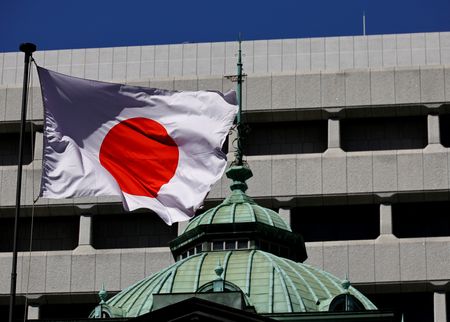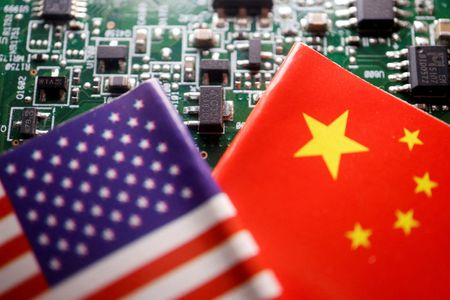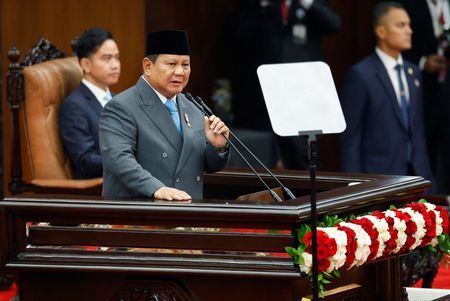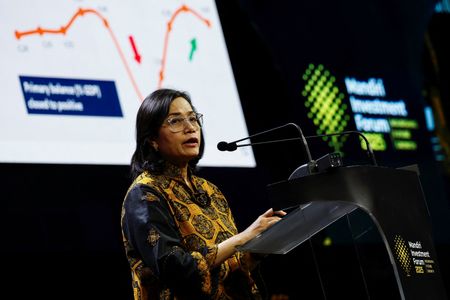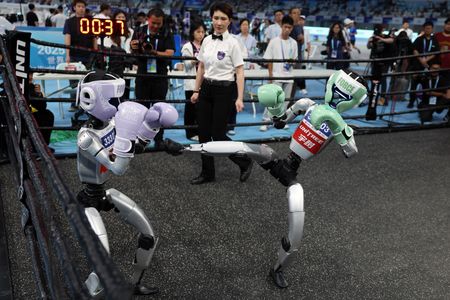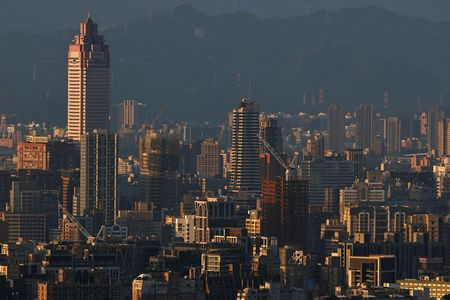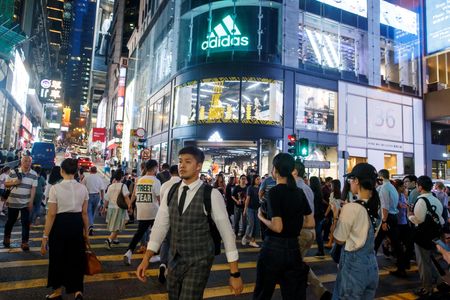By Leika Kihara
TOKYO (Reuters) -Bank of Japan policymakers were at loggerheads this month over how soon they should raise interest rates again as some focused on domestic inflationary pressure and others on uncertainty over U.S. tariff policy, a summary of opinions at its meeting showed.
The discussion highlights how U.S. President Donald Trump’s tariff hikes are complicating the BOJ’s plan to raise interest rates to address broadening price increases that have kept Japan’s inflation above its 2% target for nearly three years.
Hawks on the BOJ’s board warned of rising price pressures, with one saying the recent surge in food costs could persist and have a “big impact” on underlying inflation, according to the summary of discussions at the March meeting released on Friday.
Several other board members pointed to bumper pay hikes offered by big firms in this year’s annual wage talks with unions as evidence that conditions for further rate hikes were falling into place.
“Japan’s economy is at a stage where our price target is close to being achieved, mainly due to inflationary pressure stemming from domestic factors,” one board member was quoted as saying. The BOJ will “enter a new phase” in fiscal 2025 where it needs to take such developments into account in communicating its policy intentions to the public, the board member added, referring to the year ending March 31, 2026.
Others, however, appeared to focus more on heightening risks to the global outlook and Japan’s economy from higher U.S. tariffs, the summary showed.
“Downside risks stemming from the United States have rapidly heightened recently and, depending on how tariff-related issues develop, it is quite possible that these risks will have a negative impact on Japan’s economy,” one opinion showed. “In that case, the Bank will need to be particularly cautious when considering the timing for a rate hike.”
At the March 18-19 meeting, the BOJ kept interest rates steady at 0.5%. Governor Kazuo Ueda warned of heightening global economic uncertainty at a post-meeting briefing, while pointing to the risk that rising food costs and stronger-than-expected wage growth could push up underlying inflation in Japan.
SHIFT TO NEUTRAL
Data released on Friday showed core consumer inflation in Japan’s capital hit 2.4% in March, accelerating from the previous month on steady rises in food costs.
“The views of the doves and hawks were balanced, and there were no specific signals on the timing of the next rate hike,” said Yusuke Matsuo, senior market economist at Mizuho Securities.
“The discussions are consistent with the tone of Ueda’s news conference, which signaled readiness to raise rates further but left the BOJ a free-hand on the timing,” he said.
The BOJ next meets for a rate review on April 30-May 1, when the board will issue fresh quarterly growth and price forecasts that will be key to how far it could eventually hike rates.
“When the BOJ next hikes rates, underlying inflation may be fairly close to our price target. Therefore, the BOJ will need to consider shifting its current accommodative monetary policy stance to a neutral one,” one member said.
Aside from domestic price pressures, the key focus of debate in upcoming BOJ meetings is the expected hit to Japan’s economy from Trump’s announcement on Wednesday to impose a 25% tariff on automobile imports. But some BOJ policymakers appear unfazed.
“Although uncertainties have heightened, it does not mean that the bank should always conduct monetary policy in a cautious manner. It may face a situation where it should act decisively,” according to one opinion in the March summary.
A Reuters poll showed many analysts expect the BOJ’s next rate hike to come in the third quarter, most likely in July.
The summary does not reveal the identity of the board member who made the comment.
(Reporting by Leika Kihara; Editing by Christian Schmollinger, Jamie Freed & Shri Navaratnam)

